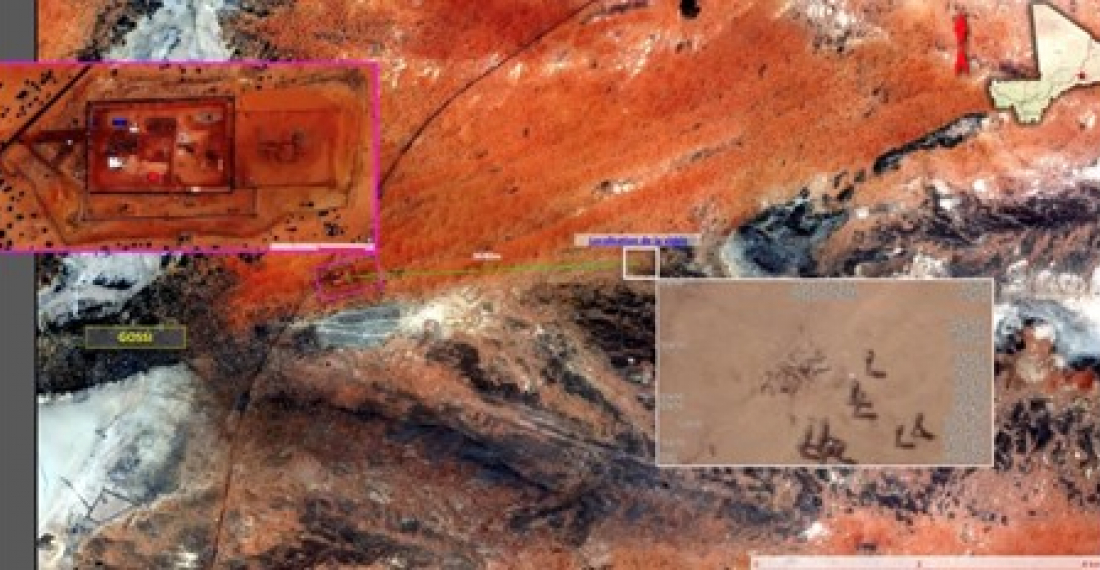The French army says it has filmed Russian mercenaries from the paramilitary group Wagner burying bodies near a Malian military base, in an attempt to falsely accuse France’s departing troops of leaving behind mass graves.
The video shot from a French drone, which shows the behind-the-scenes making of an infox, features white men near the Gossi military base in northern Mali. This military base was returned to the Malian military on Tuesday 19th April.
In a move to discredit the French army and its anti-terrorist operations on the ground, a tweet wrote, "this is what the French left behind when they left the base in Gossi… We cannot keep silent!" accompanied by pixelated images of corpses buried in sand, was published on Thursday 21st April by a certain Dia Diarra. According to the French general staff, this Twitter account is a fake created by Wagner, as it can also be found on a Russian platform.
Unfortunately for the mercenaries of the Wagner group, the French army had positioned a drone in the last 24 hours overlooking the Gossi camp.
In this video, which was made available to the international media, a dozen soldiers with Caucasian features are seen shovelling sand over the bodies, which are in the same position as the ones in the tweet. Dongfeng vehicles used by Wagner and two men filming the mass grave are also visible. According to the French army, comparing the photos published on Twitter and those taken by the drone allows us to grasp the construction of the infox created by Wagner.
If the presence of the drone washes the discredit off the French army this time, the upcoming accusations will certainly reinforce an anti-French sentiment that has been growing in West Africa since 2013.
Even though France responded to Mali's call for help in 2013 by launching Operation Serval, which was initially militarily successful in pushing jihadist forces out of the north of the country, popular support did not last.
A persistent feeling of insecurity and a public opinion hostile to the presence of the French army for so many years on its territory provided the Malian junta with an ideal scapegoat, and Bamako clearly expressed its wish to see the French troops leave.
Furthermore, the successive appearance of new heads of state due to the recent coups in Mali, Chad, and Burkina Faso, have weakened French alliances throughout West Africa. This lack of cooperation and of trust has allowed the jihadists to conquer several swathes of territory and has opened the door to Russia in the region, through the paramilitary Wagner group.
The Malian transitional authorities have denied the accusations and said that the Russians in the country were military instructors.
The French general army staff warned about information warfare following the pullout from the base, which hosted 300 French soldiers.






